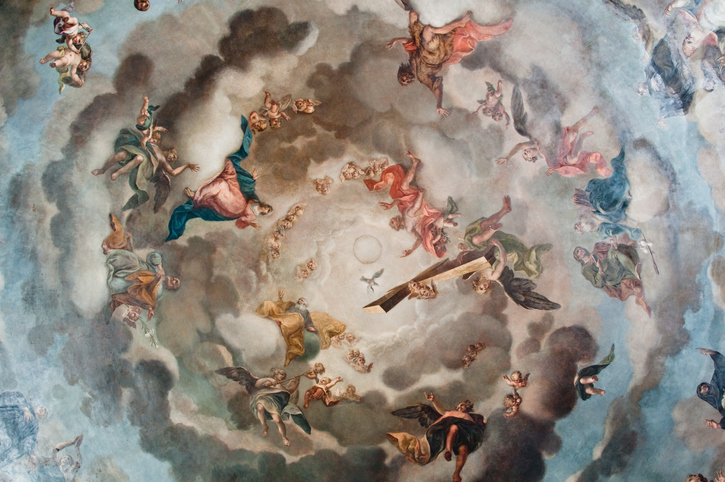The Church in her wisdom immediately reminds us at the very beginning of the Advent season that in these days of expectation, we are not only reliving the waiting of our ancient fathers, the centuries of longing for the promised Messiah.
We are, yes, entering into the journey begun by their longing and expectation, but we are doing so with our eyes wide open. As brothers and sisters of Jesus—God-with-us who took on our flesh with its limitations, sorrows, and joys—our eyes are fixed on the “mountain of the Lord’s house…the highest mountain…raised above the hills.”
Neither am I looking up at this mountain as my own personal salvation. Again, the Church makes clear, “All nations shall stream toward it; many people shall come and say: ‘Come, let us climb the Lord’s mountain….’”
There is a joy that rings out from these verses of Isaiah. Come, let’s go! Let’s go together! Let us climb that “he may instruct us in his ways and we may walk in his paths.”
In Advent, then, the Church sets our sights on the highest mountain, the final days when the heavenly Jerusalem will be home to everyone who walks in the Lord’s ways.
The heavenly Jerusalem can seem a long way off, but the birth, life, death, and resurrection of Christ have brought it quite near. Origen reminds us: “Christ has flooded the universe with divine and sanctifying waves. For the thirsty, he sends a spring of living water from the wound which the spear opened in his side. From the wound in Christ’s side has come forth the Church, and he has made her his Bride” (Commentary on Psalm 77,31, Commentary on Proverbs 31,16).
The Church, in its deepest understanding, is the world in the course of transfiguration. The world, in Christ, reflects the light of paradise. The world-in-Christ is heaven and earth renewed, brought to us in the sacraments. The Didache tells us that the Church in the earliest centuries was praying and hoping at every celebration of the Eucharist that the world would actually be transfigured: ‘May the Lord come and the world pass away,’ that is, the world of death and illusion. It is the Eucharist, then, that constitutes the Church as a people of the Exodus on its way to the Kingdom, already fed by the manna of eternity.
So in these days when relations among nations cause us to worry and the suffering of peoples seems so immense that we feel powerless to help, Advent reminds us that in the end, when the world is transfigured completely in the unquenchable light of the Kingdom to come:
“He shall judge between the nations, and impose terms on many peoples. They shall beat their swords into plowshares and their spears into pruning hooks; One nation shall not raise the sword against another, nor shall they train for war again.
O house of Jacob, come, let us walk in the light of the Lord!”

Kathryn James Hermes, FSP, is the author of the newly released title: Reclaim Regret: How God Heals Life’s Disappointments, by Pauline Books and Media. An author and spiritual mentor, she offers spiritual accompaniment for the contemporary Christian’s journey towards spiritual growth and inner healing. She draws from the spiritual tradition and her own lived experience to lead seekers deep within themselves and through their personal history to deepen their intimacy with and trust in God; live with greater joy, peace, and interior freedom; and encounter the Lord in their past and present life experiences to find healing, grace, and newness of life. She is the director of My Sisters, where people can find spiritual accompaniment from the Daughters of St. Paul on their journey.

